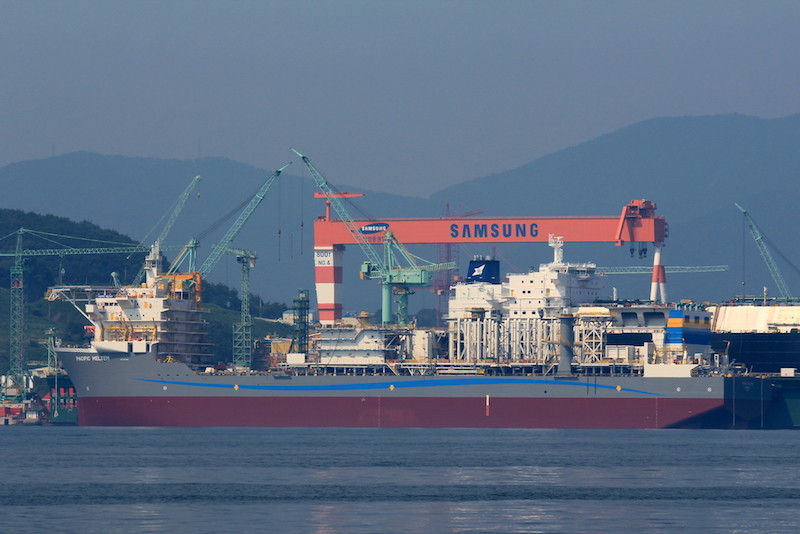International News
Israeli PM Netanyahu Appoints New Ambassador To The U.S
In a significant move, Israeli Prime Minister, Benjamin Netanyahu has appointed Yechiel Leiter, a seasoned U.S.-born diplomat, as Israel’s next ambassador to the United States.
The announcement, made Friday, positions Leiter at a crucial moment in Israel-U.S. relations, following President Donald Trump’s reelection to a second term.
READ ALSO: Baltasar Engonga: Wife’s Sextape With Another Man Allegedly Surfaces
Describing Leiter as “a highly capable diplomat, an eloquent speaker, and a person with a deep understanding of American culture and politics,” Netanyahu underscored the new ambassador’s extensive qualifications.
Leiter’s appointment comes on the heels of a victory by Trump, a leader widely praised in Israel for his unwavering support of the country.
Leiter brings a wealth of experience to the role, having served as chief of staff in Israel’s Finance Ministry, as well as deputy director general of the Education Ministry and acting chairman of the Israel Ports Company.
His diplomatic acumen, combined with his personal connection to both Israel and the U.S., makes him a key figure in strengthening the bilateral relationship.
The appointment carries additional weight following the tragic loss of Leiter’s son, who was killed in combat during last year’s Gaza conflict while serving in the Israeli military.
His personal sacrifice underscores the depth of his commitment to Israel’s security and values.
Leiter’s selection has been met with support from influential Israeli leaders, including Yisrael Ganz, head of the Yesha Council, which represents Jewish settlements in the West Bank.
Ganz commended Leiter for his advocacy of “Judea and Samaria,” a term used by Israelis for the West Bank, a territory that remains at the heart of the Israeli-Palestinian conflict.
Leiter’s appointment marks a significant step in reinforcing the strong ties between Israel and the U.S., particularly under the Trump administration, with many in Israel optimistic about the potential for deepened diplomatic engagement.
International News
Niger Drops French, Declares Hausa As New National Language
In a bold move to redefine its national identity and sever ties with its colonial past, Niger’s ruling junta has officially adopted Hausa as the country’s national language, replacing French.
A new national charter, published in a special edition of the government’s official journal on March 31, stated: “The national language is Hausa” and “the working languages are English and French.”
READ MORE: Woodhall Capital Foundation Trains Nigeria’s Captains Of Industry
The decision is part of sweeping reforms introduced by the military government that took power in July 2023 after ousting President Mohamed Bazoum. Since then, the junta has taken deliberate steps to distance itself from France, including the expulsion of French troops and the renaming of streets and landmarks that bore French names.
Hausa is the most widely spoken language in Niger, particularly in the regions of Zinder, Maradi, and Tahoua. By contrast, French is spoken by only about 13 percent of the population—just over three million people in a country of 26 million.
The charter also designates nine other local languages—Zarma-Songhay, Fula, Kanuri, Gourmanche, Arabic and others—as the “spoken languages of Niger.”
The reforms stemmed from a national conference held in February, during which the junta was granted broader powers, including a five-year extension for General Abdourahamane Tiani to remain as head of state.
Niger, along with Mali and Burkina Faso—also under military rule—recently withdrew from the Organisation Internationale de la Francophonie (OIF), a cultural and political body representing French-speaking countries.
International News
Massive 7.7 Magnitude Earthquake Rocks Myanmar, Shakes Southeast Asia
A powerful 7.7-magnitude earthquake struck central Myanmar on Friday, shaking the region and sending tremors as far as Thailand and China.
The quake’s epicenter was located in the Sagaing region, near Mandalay, Myanmar’s second-largest city, home to around one million people and renowned for its historic temple complexes.
Panic erupted as buildings swayed and dust filled the air.
READ ALSO: Powerful 6.8-Magnitude Earthquake Hits China, Dozens Killed
In Mandalay, videos shared online showed terrified residents rushing out of residential towers while traffic came to a sudden halt.
Reports indicate that a major bridge spanning the Irrawaddy River collapsed into the water in a cloud of dust and debris.
The quake was felt as far as Bangkok, Thailand’s capital, where video footage showed a partially constructed building in Chatuchak Park crumbling to the ground.
Thai authorities reported that 43 people were trapped in the wreckage, while seven others sustained injuries.
In Chiang Mai, a resident described feeling the tremors for about ten seconds before fleeing into the streets.
In Myanmar’s commercial hub, Yangon—about 380 miles from the epicenter—residents also experienced the powerful shaking.
One resident recalled, “We felt the quake for about a minute, then ran out of the building.
It was very sudden and very strong.” Another noted that phone networks in the city, home to around 8 million people, briefly went down but were later restored.
Myanmar, one of Asia’s poorest nations, is already grappling with the effects of a brutal civil war sparked by a military coup over four years ago.
The conflict has devastated the economy, and the country remains ill-equipped to handle a major natural disaster of this scale.
The Sagaing region, where the earthquake struck, is a war zone with multiple factions—including the ruling junta, pro-military militias, and rebel groups—fighting for control.
The ongoing violence has made travel by road or river extremely dangerous, posing significant challenges to delivering emergency aid and assessing the full extent of the damage.
Tremors were also felt in China’s southwestern Yunnan province, underscoring the quake’s intensity.
Authorities across the region are now assessing the situation, with emergency teams mobilizing in both Myanmar and Thailand.
International News
Samsung Electronics Co-CEO, Han Jong-hee Dies At 63

Han Jong-hee, co-CEO of Samsung Electronics and a driving force behind the company’s dominance in the global television market, has died of a heart attack at the age of 63, the company confirmed on Tuesday.
“He died from cardiac arrest today,” a Samsung spokesperson stated, adding that Han is survived by his wife and three children.
Having joined the company in 1988, Han played a significant role in shaping Samsung’s television business.
READ MORE: Samsung Reports Worst Quarterly Profits In 14 Years
His leadership was instrumental in the launch and success of the company’s high-end LED TVs, which helped establish Samsung as a global leader in the industry.
“Han was central in the unveiling of Samsung’s world-class LED TVs,” the company noted in a biography published earlier this month. “His numerous other innovations enabled the company to continually demonstrate its technology leadership.”
His efforts ensured that Samsung maintained its position as a dominant force in the global television market.
Han’s death comes at a time when Samsung Electronics is grappling with challenges in the AI chip sector.
The company has been facing difficulties in meeting Nvidia’s standards, while its South Korean competitor, SK Hynix, has emerged as the leading supplier of high-bandwidth memory (HBM) chips for Nvidia’s AI processors.
Chairman Lee Jae-yong recently underscored the urgency of the situation, urging Samsung to adopt a “do-or-die” approach to overcome the growing challenges in the AI industry.
Last October, the company acknowledged it was facing a “crisis,” citing concerns over its “fundamental technological competitiveness and the future of the company.”












